Around 80% of adult American consumers have some type of debt. Whether it’s from a mortgage, credit card debt, auto loans, student loans, medical bills or payday loans, the bills can start to pile up, leading to late payments and defaults that crush your credit score.
A debt consolidation loan can combine current debts into one larger loan, potentially saving you a lot of money in the long run. Plus, some loans are designed for borrowers with bad or fair credit, which makes them a great option for those who struggle with managing their debt.
Do you qualify for debt consolidation?
Credit Summit may be able to help.
Disclaimer: Credit Summit may be affiliated with some of the companies mentioned in this article. Credit Summit may make money from advertisements, or when you contact a company through our platform.
Table of Contents
10 Best Debt Consolidation Loans for People with Poor Credit
With the right debt consolidation loan, you can handle your existing debt and potentially keep from accruing more unmanageable debt in the future.
Online lenders
Here are the best debt consolidation loans for consumers with bad or poor credit, plus their eligibility requirements and terms.

Upstart
- Loan amount: $1,000 to $50,000 (some states have a higher minimum, such as $7,000 in MA or $3,000 in GA)
- Terms: 3 to 5 years
- APR: 6.7% to 35.99% fixed rate (average APR on 36-month loan is 24.34%)
- Origination fee: 0% to 8%
- Application: Easy and online with up to same-day funding
- Payment schedule: Monthly payments
- Other fees: No prepayment penalties
- Minimum credit score: 600 FICO score
- Other requirements: No recent bankruptcies or other major delinquencies
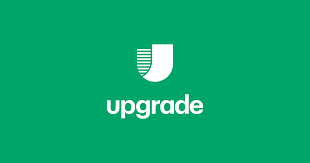
Upgrade
- Loan amount: $1,000 to $50,000
- Terms: 2 to 7 years
- APR: 8.49% to 35.99% fixed rate
- Origination fee: 2.9% to 8%
- Application: Easy and online
- Payment schedule: Monthly payments with 0.5% discount for autopayments
- Other fees: No prepayment penalties; discount for those with an Upgrade checking account
- Minimum credit score: 560 or 620 FICO score, depending on other factors
- Maximum DTI: 55% to 65%
- Other requirements: Minimum income $35,000; minimum 3-year credit history with 2+ active accounts in good standing
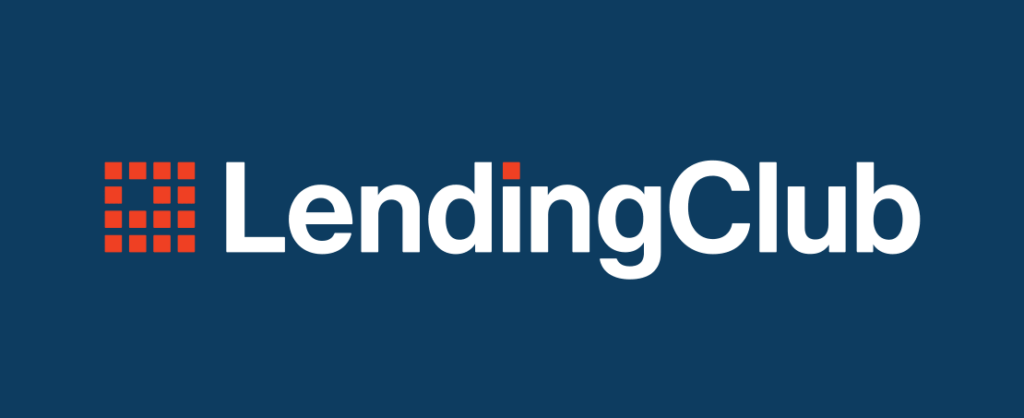
Lending Club
- Loan amount: Up to $40,000
- Terms: 3 to 5 years
- APR (annual percentage rate): 6.34% to 35.89% fixed rate
- Number of loans: Up to 2 loans at a time
- Origination fee: 1% to 5%
- Application: Easy and online
- Payment schedule: Automatic monthly payments
- Other fees: No prepayment penalties
- Minimum credit score: 600 FICO score
- Maximum DTI: 40% or less, excluding mortgage
- Other requirements: less than 7 credit inquiries on credit report in the past 6 months; 2+ open revolving credit accounts in good standing; no recent bankruptcies, accounts in collections, or tax liens
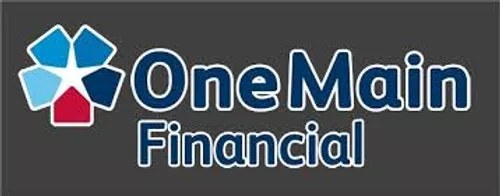
OneMain Financial
- Loan amount: $1,500 to $20,000
- Terms: 2 to 5 years with options for collateral or co-applicant on loan
- APR: 18% to 35.99% fixed rate
- Origination fee: Varies
- Application: Online with potentially fast funding
- Payment schedule: Monthly
- Other fees: No prepayment penalties
- Availability: Not available in AR, AK, CY, RI, MA, or VT
- Minimum credit score: 600 or 650 FICO score, depending on other factors
- Other requirements: Minimum income $35,000; minimum 3-year credit history with 2+ active accounts in good standing
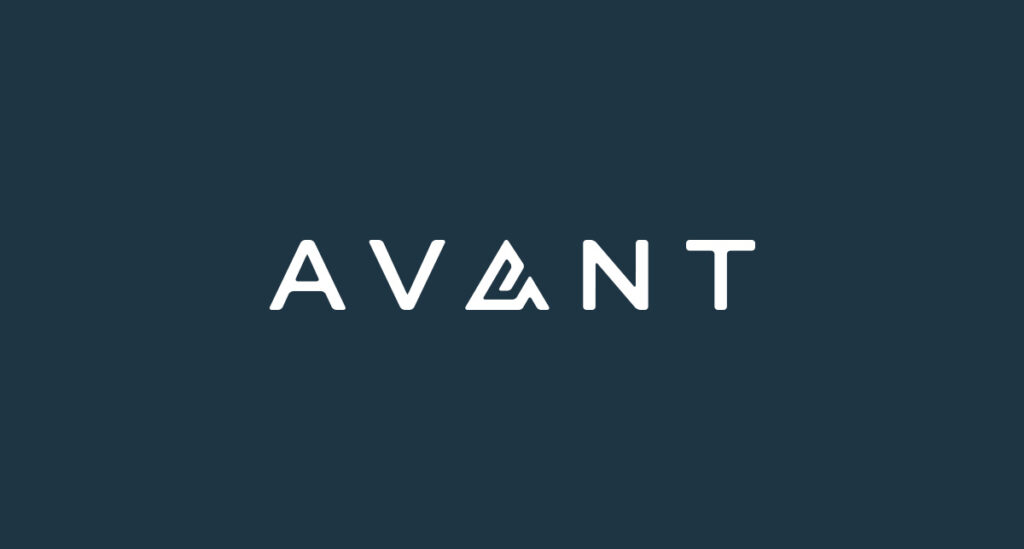
Avant
- Loan amount: $2,000 to $35,000
- Terms: 2 to 5 years
- APR: 9.95% to 35.99% fixed rate
- Origination fee: 2.9% to 8%
- Application: Online with same-day funding available
- Payment schedule: Monthly
- Other fees: No prepayment fees; administration fee up to 4.75%
- Minimum credit score: 580
- Other requirements: May require collateral for larger loans

Happy Money (Previously Payoff)
- Loan amount: $5,000 to $40,000 (varies by state)
- Terms: 2 to 5 years
- APR (annual percentage rate): 10.99% to 29.99% fixed rate
- Origination fee: 0% to 5%
- Application: Easy and online
- Payment schedule: Fixed monthly payments
- Other fees: No late payment, prepayment, or other hidden fees
- Minimum credit score: 600 FICO score with an average 640 credit score
- Other requirements: No current delinquencies like bankruptcy on the credit report
- Advantage: The average borrower’s credit score improved by 40 points (based on those with $5,000+ in debt)

Universal Credit
- Loan amount: $1,000 to $40,000
- Terms: 3 to 5 years
- APR (annual percentage rate): 11.69% to 35.99% fixed rate
- Origination fee: 4.25% to 8%
- Application: Online with funding as soon as the next business day
- Payment schedule: Fixed monthly payments
- Other fees: No prepayment fees
- Minimum credit score: 560 (average is 638)
- Maximum DTI: 75% including mortgage and the loan itself
- Other requirements: No minimum income, but must have at least 2 open accounts
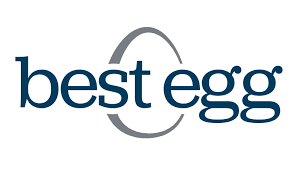
BestEgg
- Loan amount: $2,000 to $50,000
- Terms: 3 to 5 years
- APR (annual percentage rate): 8.99% to 35.99%
- Origination fee: 0.99% to 5.99% (included in APR)
- Application: Online with funding in 1 to 3 business days
- Payment schedule: Monthly
- Minimum credit score: 550 to 600
- Other requirements: $100,000 annual income recommended
Credit Unions or Local Banks
Large banks are commercial lenders, so most don’t offer debt consolidation loans. Wells Fargo is an exception to this. Some local banks also have debt relief programs.
Credit unions, on the other hand, are nonprofit cooperatives, meaning all profits they earn are used to the advantage of their existing members. As a result, they’re usually more flexible and may offer debt consolidation loans for borrowers with bad credit.
Community Financial Credit Union and PenFed Credit Union also grant debt consolidation loans. Here’s what to expect with their debt consolidation loans.
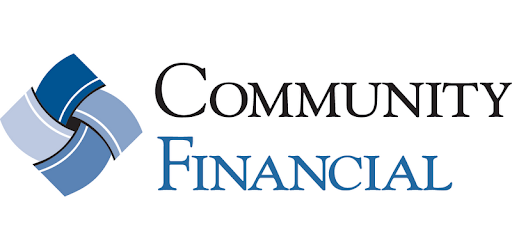
CFCU
- $30,000 maximum loan
- Up to 5-year loan terms
- Personal loans and credit cards as low as 11% APR
- May require an existing credit score
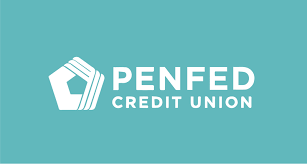
PenFed Credit Union
- Loan terms up to 5 years
- $500 to $50,000 loans
- APR starting at 7.74%
- No loan origination fees, early payoff fees, or hidden fees
- Unknown FICO score requirements
- Available in all 50 states to veterans, military personnel and associated individuals
How to Qualify for the Best Debt Consolidation Loan Rates
Debt consolidation loans are primarily marketed toward people with subprime credit. An individual’s credit score is based on their credit history. Prospective lenders use it to determine how risky it might be to lend money to that individual, as well as how much to lend and on what terms. Your loan options and the interest rates you’ll pay will depend on where your credit rating falls.
A credit score, or FICO Score, is a three-digit number that falls into the following categories:
- Poor credit: 300 to 579
- Fair credit: 580 to 669
- Good credit: 670 to 739
- Very good credit: 740 to 799
- Exceptional credit: 800 to 850
The average credit score in the U.S. is 698. An estimated 33% of Americans have a credit score below 670, meaning they have either poor or fair credit. Lenders may classify credit scores in this range as “subprime.”
Individuals with subprime credit often have difficulty qualifying for loans. When they do qualify, they are subject to high interest rates, higher deposits, and unfavorable terms. By the end of the loan, many borrowers end up paying thousands of dollars extra in interest alone and other fees.
Most debt consolidation loans, however, offer better repayment terms like a reduced interest rate and lower monthly payments. These loans are usually easier to manage and more affordable than other options. They’re also much easier to qualify for.
To qualify for a debt consolidation loan, a borrower must typically:
- have a minimum credit score of 650, though some lenders accept a score as low as 600.
- provide proof of a valid source of income
- have a less than 36% debt-to-income (DTI) ratio
- provide equity as collateral for larger loans
Some lenders have other eligibility requirements, while others have more lax standards.
5 Steps to Getting a Debt Consolidation Loan with Bad Credit
Some lenders have strict eligibility requirements for personal loans. Even if you qualify for a debt consolidation loan, things like a poor credit score could mean higher interest rates and longer payoff periods. To improve your odds of qualifying at the best rates, follow these five steps:
1. Check Your Credit Report for Errors and Monitor Your Credit Score
Routinely check your credit score to see if it’s improving. Use a free online tool or get a free annual credit report from one of the three major credit bureaus — TransUnion, Equifax, or Experian. Look for any errors on the report since these could bring down your credit. Be prepared to dispute these errors if necessary. If you can build your credit score, you may eventually be eligible for a credit card balance transfer offer that offers a 0% introductory rate. These offers can save you hundreds or even thousands of dollars in interest.
READ MORE: Why did my credit score drop?
2. Be Patient: Shop Around for the Best Loan Offer
While building credit, research debt consolidation lenders. Compare things like interest rates, loan terms, origination fees, the application process and other requirements. Does the lender offer incentives for autopay? If possible, wait to take out a loan until your credit score increases and you can qualify for the best rates.
READ MORE: Best personal loans
3. Try a Secured Loan or Credit Card
Unlike debt consolidation loans, which are typically unsecured debt, secured loans and credit cards require the borrower to put up collateral to cover the loan if they default. This collateral may be home equity, a paid-off vehicle, or another asset. Whatever the collateral is, it should be worth equal to or more than the loan itself.
Since they require collateral, secured loans pose minimal risk to lenders. As a result, consumers with poor credit usually have an easier time qualifying for these loans at a better rate. Plus, the borrower can build credit by making on-time payments to the new loan.
READ MORE: Best secured credit cards
4. Take Some Time to Boost Your Credit Score
If your credit score is below 600, the best option is to take a few months to build it. Here are some ways to do this.
- Make on-time payments on any existing liabilities or debt. Any payment made more than a month late can damage your credit score.
- Reduce your debt-to-income ratio to no more than 30% of your available credit limit.
- Try to bring any delinquent accounts up to date as soon as possible.
- Monitor your credit report for any changes and focus on areas of weakness.
- Use a secured credit card to build credit until you qualify for an unsecured card.
- Try a credit builder loan.
Did you know that you can also build credit with subscription services like Netflix and Hulu?
5. Add a Co-signer
Some lenders allow joint applications or cosigners. A co-signer acts as a kind of endorsement that you’ll be able to pay back the loan on time to the lender. For higher approval odds and decent loan terms, choose a cosigner with a credit score in the 700s or above.
Are you thinking about consolidating your debts? Here are a few pros and cons:
Other Options for Debt Relief
Besides debt consolidation loans, there are other options for those with poor credit and overwhelming or growing debt.
DIY Fixes
- Budget overhaul: Just because a budget worked for a while doesn’t mean it will work forever. Expenses change, as does income, so your budget needs to change with it. Your budget may need an overhaul if you are living month-to-month, spending more than you earn or struggling to save money. If your original budget was based on estimates rather than actual expenses, it may also be time to make the change. When overhauling your budget, see if you can lower any expenses.
- Request a due-date adjustment: If you find yourself consistently behind on payments and accruing late fees because of the due date on your accounts, reach out to the creditor and ask about changing the payment’s due date. Many creditors or lenders will allow this, but the changes may not take effect for a few months. Some may allow only a certain number of changes each year.
- Renegotiate debt: Renegotiating debt (aka debt settlement) is a way to pay off debt sooner and save money while doing it. A debt settlement program can help consumers resolve their existing debt at a lower cost than the initial balance. However, it’s also possible to settle debts on your own. Start by evaluating your current financial situation, such as how much you owe and how far behind you are on payments. Next, contact each creditor to see if they have a debt settlement policy. Some won’t, but others may be willing to negotiate. Remember that most creditors will require a lump sum payment anywhere from 20% to 50% of what you currently owe before renegotiating the debt. Once you have the required amount, see if the creditor will accept it.
A note about debt settlement: Your may reply with a counteroffer or send a settlement agreement with the new terms for you to read and sign. If you don’t have the time or struggle with anxiety and stress, you may want to hire a debt settlement company to help you.
Personal Loans from a Bank or Credit Union
Debt consolidation loans are a type of personal loan, but not all personal loans are debt consolidation loans. Financial institutions such as credit unions, banks, and online lenders offer personal loans. There are two main types of personal loans: secured and unsecured.
- Secured personal loans use some form of collateral like home equity to give the borrower more incentive to repay what they owe. They usually offer more favorable loan rates, but they may lose the collateral if a borrower defaults.
- Unsecured personal loans do not use collateral. These loans are also riskier to lenders, so individuals with poor credit may have a harder time qualifying for them.
Personal loans vary based on the lender. However, most personal loans work with installments, meaning the borrower must pay a specified amount every month. Many personal loans range from $1,000 to $20,000, though some lenders offer higher amounts. The money borrowed can be used for anything.
Lenders will usually determine the APR and other loan terms based on the borrower’s credit score, payment history, current income, and debt-to-income ratio.
What to Do if Your Financial Situation is Dire?
If things are dire, here are a few options to get you back on track and control your finances as soon as possible.
- Credit counseling: Credit counseling agencies are a great way to manage or consolidate debt, though they usually charge a monthly fee. A credit counselor can teach you to negotiate rates with creditors and build better financial habits for the future. If you have accounts in collections, have defaulted on loans, live paycheck-to-paycheck, or just can’t get a handle on your debt, consider credit counseling as a solution.
READ MORE: Complete guide to credit counseling
- Debt settlement: Debt settlement is the process of negotiating with creditors to try to pay less than what you owe. This can be beneficial if you cannot make on-time payments, are falling deeper into debt, or need some immediate debt relief. Not all creditors will negotiate, but many will since, in their eyes, even a partial payment is better than no payment. Debt settlement does hurt the consumer’s credit score, however. Additionally, some of the forgiven debt may be considered taxable income.
READ MORE: Best debt settlement companies
- Home equity loan, line of credit (HELOC) or cash-out refinance: If you own a home, your home equity can help you get out of debt. You need to be completely certain you can make the loan payments, though, because you’ll be putting your home on the line.
READ MORE: What is a second mortgage?
- Bankruptcy: Although a last resort, bankruptcy is a way to clean the slate. It will destroy your credit, but it can also provide a fresh start if needed. Filing for bankruptcy will release you from most, but not all, debts. It will stay on your credit report for up to 7 years, but it may be a good option if you have a high DTI ratio, multiple delinquent accounts, and poor credit. There are two main types of personal bankruptcy – Chapter 7 and Chapter 13. Think carefully about both options and consult an attorney before going this route.
READ MORE: Types of bankruptcy explained
Options like debt consolidation loans and credit counseling can help build credit over time. Debt settlement and bankruptcy may damage your credit score for a while, but they can also help you get on the right track.
Watch Out for Predatory Lenders and Scams
Predatory lenders target people with bad credit. They charge sky-high interest rates and often have unfavorable terms. In many cases, these lenders are nearly as bad as payday or tribal lenders, which usually come with short repayment terms and APR in the triple digits.
Here are some red flags to watch out for:
- An initial interest rate that seems too good to be true, especially considering your current credit score and other prequalifying offers you’ve received from other lenders.
- It’s extremely easy to get approved.
- The lender is pressuring you to act now, even if the loan itself seems risky.
- The lender is trying to convince you to take out a bigger loan than you initially wanted.
- Fees or terms for the loan suddenly change at closing.
- The loan terms are vague and the lender won’t reveal specifics until after you’ve already applied and been approved for the loan.
- The lender asks you to lie on your application.
- The lender requires automatic withdrawals from your bank account.
- On sites like the Better Business Bureau and TrustPilot, the lender has a poor reputation with multiple, unresolved consumer complaints.
- The lender isn’t licensed.
If something doesn’t look or feel right when looking for a new lender, it may be a sign to look elsewhere.
The Bottom Line
Managing debt can be stressful, but there are ways to make it more manageable. Consider a debt consolidation loan if you have poor credit and are starting to worry about multiple accounts with different interest rates and payment dates.
Remember, other options like debt management plans, secured loans, and financial counseling services are available to help you improve your financial situation and handle your debt now and in the future.
FAQS
Here are the best ways to improve your credit score.
Pay down debt: Credit utilization is a major factor in your credit score. The recommended maximum credit utilization is 30% of all available credit.
Make on-time payments:. Approximately 35% of your FICO credit score is based on on-time payments. Even one late payment (beyond 30 days) can hurt your credit. Most people with subprime credit have a history of late or missed payments. Start making payments on time now to steadily improve your credit score.
Pay more than the minimum: Try to pay more than the minimum required amount to reduce your debt and get your credit utilization below 30%.
Keep accounts open: The average age of an individual’s active accounts has around a 15% impact on their credit score. Older accounts that are in good standing have the highest positive impact. Keep your accounts in good standing and open to build credit.
Add to your mix of credit: A good mix of credit contributes to around 10% of your overall credit score. This includes things like credit cards, auto loans, student loans, debt consolidation loans, and more. Set a budget to make sure you don’t fall behind on any open accounts.
Avoid hard inquiries: A hard inquiry is what happens when a potential lender, landlord, employer, or otherwise performs a hard credit check into your report. These inquiries can stay on your report for up to a year. If you’re looking to open a new account, see if the lender offers prequalification instead to reduce the number of hard inquiries.
Avoid delinquencies: Bankruptcy, foreclosure, and accounts in collections have a major, lasting impact on your credit score. Use a debt consolidation loan or another method to get delinquent accounts back in good standing and build credit.
To create a budget, divide every monthly and annual expense into fixed and variable expenses.
Fixed expenses are any bills that don’t change from month to month. These are often the essentials, like rent, mortgage, vehicle payments, insurance, and student loans.
Variable expenses are things that change weekly or monthly. Many variable expenses are wants rather than needs. Examples include going out with friends, gas, shopping, vehicle repairs, and groceries.
Once you know where your money goes every month, it’ll be easier to manage a debt consolidation loan without it becoming financially overwhelming.
In the long run, it probably will. However, at the start of the program, a credit counselor might perform a hard pull on your credit report, which will cause a temporary dip. A debt management plan or debt settlement program could also cause your score to drop. However, as your financial situation improves, you’ll be able to start rebuilding credit as a byproduct of credit counseling.
